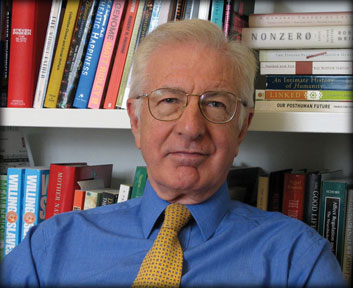Inspiration for happiness hunters
 If you look at life from a psychological perspective, you will note
that most of us are pursuing happiness. We think passing examinations,
falling in love, getting a lucrative job or winning a lottery prize will
make us happy. Most psychologists do not agree that happiness can be
measured so easily. The past two decades of psychological research shows
that examination success, love, marriage and money do not make us happy.
Then what makes us happy? If you look at life from a psychological perspective, you will note
that most of us are pursuing happiness. We think passing examinations,
falling in love, getting a lucrative job or winning a lottery prize will
make us happy. Most psychologists do not agree that happiness can be
measured so easily. The past two decades of psychological research shows
that examination success, love, marriage and money do not make us happy.
Then what makes us happy?
Before answering that question, we have to understand what happiness
means. In a way, happiness defies definition. For instance, a sense of
satisfaction is only one aspect of happiness. It does not give anyone
lasting happiness. Falling in love is really exciting. However, even the
best of lovers get tired of love after some time. Even marital happiness
does not last long. Inadequate income, family disputes and children’s
problems are bound to mar the happiness of marriage.
This does not mean that nobody is happy. People with a limited income
are happier than multi-millionaires. Less educated people lead quite
happy lives while highly educated men and women wallow in misery. We
tend to think that those in the limelight such as actors and politicians
are a happy lot. If you study them closely, you will find that they are
not so happy.
Fuzzy concepts
Although psychologists paid scant attention to fuzzy concepts such as
happiness during the behaviourist years, human happiness is a major
topic in modern psychology. According to modern psychologists, it is
good to remain happy because happiness makes people more generous and
kind. For instance, beggars frequenting public parks approach young
couples knowing very well that they would donate money lavishly.
 |
|
Richard Layard: Greater
riches do not make us happier |
Does happiness make us live longer than unhappy people? In a study of
the life expectancy of a group of nuns in the United States, it was
found that there is a link between positive emotions and longevity.
Happy people have positive attitudes. They are happy with what they
have. For them, contentment is the keyword. They enjoy life despite
physical ailments, loss of income and family bereavements. For them,
life satisfaction is a sine qua non.
Are people in sunny islands such as Sri Lanka happier than those
living in cold and rainy climates? Psychologists say that it is not true
because some of the happiest people live in countries such as Sweden and
Denmark where they get less sunshine. On the other hand, most people
think that children make them happy. Children may be a great source of
happiness, but research suggests otherwise. Psychologists say for most
parents, looking after children is less enjoyable than housework.
Youth
We associate happiness with youth. However, are the youth of today
happier than old people? While old people enjoy what they do, young men
and women remain unsettled, experimenting with diverse subjects. For
instance, some doctors have established themselves as Information
Technology experts. Teachers and pharmacists give up their jobs to
become lawyers. This happens because young people are not focused on
what they do.
When we pass our youth and become adults, some of us try to retain
our youthful looks. No amount of cosmetic surgery will help bring back
youthful looks. Psychologists Carstensen and Charles have discovered
that older people are better at managing negative feelings. In fact,
older couples live far more happily than young couples who divorce their
partners over minor disputes.
Many people can be seen buying sweep tickets to become millionaires
overnight. They seem to think that more money would bring them more
happiness. Although we need money to live comfortably, when we get a
windfall of one million rupees, it can lead to disastrous situations.
Celebrated economist Richard Layard said, “Greater riches do not make us
happier.” Psychologist Tim Kasser, agreeing with the economist, said
material values breed dissatisfaction and anxiety. What is more, too
much wealth can lead to a feeling of insecurity.
Craving
Most people seem to need more money to keep up with the Joneses. A
man who wins a lottery prize of one million rupees will not be satisfied
with the money. He will crave for more money and comforts. Human nature
is that most of us are never happy with what we have. Psychologists
Brickman and Campbell call this the “hedonic treadmill.”
A redeeming factor is that all our pleasures do not fade fast. For
instance, philosophers, writers, poets, artists, musicians and dancers
enjoy what they do unmindful of the income they get. They also do not
try to make comparisons. Another secret of their happiness is that they
are in control of their life. They will remain a source of inspiration
for those pursuing happiness. |

